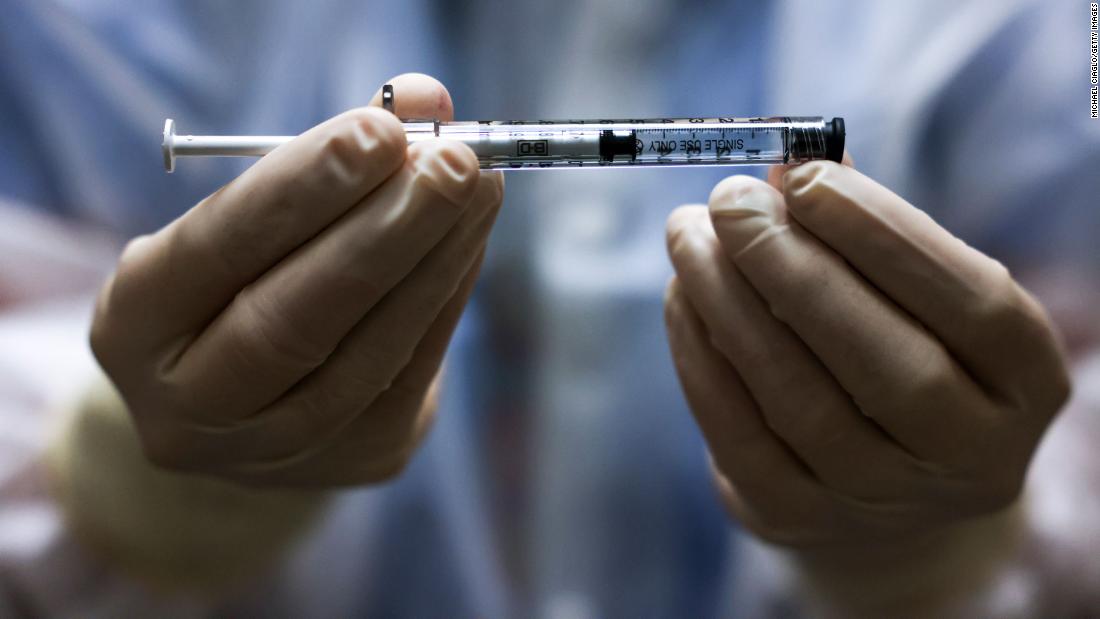The company expects to report details of more advanced tests later this month and expects to seek authorization from the U.S. Food and Drug Administration shortly thereafter.
Researchers who tested the vaccine in a combined Phase 1-2 trial – primarily to show safety – found that one or two doses of the vaccine generated responses of antibodies and T cells against the coronavirus. The tests were not designed to show whether the vaccine protected people against infection or the symptoms of coronavirus – this is what Phase 3 testing in progress should do.
The researchers – in the Netherlands, the United States and Belgium – tested the vaccine in a group of people aged 65 and over and in a group of 18 to 55 years old.
Vaccination induced neutralizing antibodies – expected to prevent the virus from infecting cells – in 90% of all participants by the 29th day after the first dose of the vaccine and in all of them up to two months after the first dose. The levels of these antibodies have remained stable for at least 71 days, they reported.
The FDA has authorized the emergency use of two coronavirus vaccines – one made by Pfizer with its partner BioNTech, and the other by Moderna. Both were about 95% effective in preventing symptomatic diseases in their Phase 3 studies. They use messenger RNA or mRNA – a new vaccine technology.
Johnson & Johnson’s vaccine arm, Janssen, uses a different approach to its vaccine, now called by the experimental name, Ad26.COV2.S. It uses a weakened version of a common cold virus called adenovirus 26 to transport genetic material from the virus to the body, causing human cells to produce pieces of the virus that are then recognized by the immune system.
“A single dose of Ad26.COV2.S elicited a strong humoral response in most vaccine recipients, with the presence of S-binding and neutralizing antibodies in more than 90% of participants, regardless of age or vaccine dose”, the researchers wrote.
“An effective single-dose Covid-19 vaccine has obvious logistical advantages over a two-dose vaccine, especially during a pandemic.” The company is studying whether a second dose increases the effectiveness or durability of the immune response.
Side effects include headache, body pain and, more rarely, fever.
“The company anticipates the announcement of key Phase 3 data for its Janssen COVID-19 single dose candidate vaccine in late January 2021; however, as this test depends on disease events, the time is approaching,” said the Johnson & Johnson in a statement. But with the pandemic growing in the US and Europe, vaccine experts say, the answers are coming quickly for vaccine testing.
“If the single-dose vaccine proves to be safe and effective, the company expects to file an application for Emergency Use Authorization with the U.S. Food and Drug Administration shortly thereafter, with other regulatory requests worldwide to be made later” , Johnson & Johnson added.
All companies that manufacture the coronavirus vaccine have been making doses, even while testing them, so that they can distribute them directly to people if they get FDA authorization. Johnson & Johnson has been contracted to deliver 100 million doses to the U.S. government if it wins the US from the FDA.
The New York Times reported on Wednesday that Johnson & Johnson was lagging behind in production, however.
“The pandemic shows no signs of slowing down and we, like everyone, are looking forward to more tools to help stop it. At the same time, it is premature to go into the details of the supply of our candidate vaccine, as we do not yet have Phase 3 data, nor do we request or receive Authorization for Emergency Use, “Johnson & Johnson said in a statement on Wednesday .
“We continue to have active discussions with regulators, including the approval and validation of our manufacturing processes.”
